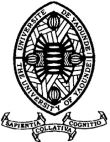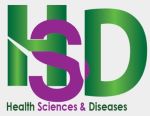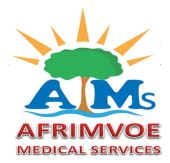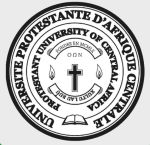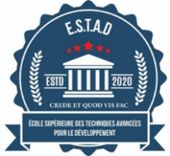Humanitarian Activities in Maxillofacial Surgery in Brazzaville: Assessment of the Last Four Years
Les Activités Humanitaires en Chirurgie Maxillo-faciale à Brazzaville : Bilan des Quatre Dernières Années
DOI:
https://doi.org/10.5281/hra.v3i4.6552Keywords:
Humanitarian campaign, Maxillofacial surgery, training, holistic care, cleft lip, palateAbstract
RESUME
Introduction. L’association "SOS SOURIRE CONGO" organise des nombreuses activités chirurgicales et pédagogiques lors de ses différentes campagnes humanitaires à Brazzaville. L’objectif de notre étude était de décrire les différentes activités réalisées, leur force et faiblesses pour des meilleures perspectives. Méthodologie. Nous avons mené une étude transversale descriptive sur une période allant de janvier 2020 à Juin Décembre 2024, menée dans le service de stomatologie et chirurgie Maxillo-faciale du Centre Hospitalier Universitaire de Brazzaville (CHU-B). Les paramètres étudiés étaient essentiellement les différentes activités menées, leur nombre, ainsi que leur résultat à court terme. Résultats. Nous avons enregistré 101 patients opérés dont 95,1% d’enfants et 4,9% d’adulte. Parmi nos patients, 90 ont bénéficié d’une consultation d’évaluation nutritionnelle et dont 45 ont été inséré dans le programme d’assistance nutritionnelle. Nous avons eu 15 enfants qui ont bénéficié de l’assistance orthoptique post-opératoire. Parmi les personnels paramédicaux membres de l’équipe, 20 ont bénéficié de quatre (04) séances de formations ciblées sur les soins post-opératoires des fentes labiopalatines. Un séminaire de formation des journalistes était organisé. Conclusion. L’offre de SOS SOURIRE CONGO avec l’appui de son partenaire Smile Train, a permis la réalisation de façon gratuite les soins des fentes labiopalatines, la formation des agents, la sensibilisation auprès des acteurs de médias et de la communauté sur la problématique des fentes labiopalatines.
ABSTRACT
Introduction. The association "SOS SOURIRE CONGO" organises numerous surgical and educational activities during its various humanitarian campaigns in Brazzaville. The aim of our study was to describe the different activities carried out, their strengths and weaknesses, in order to improve their prospects. Methodology. We conducted a descriptive cross-sectional study from January 2020 to June December 2024, in the stomatology and maxillofacial surgery department of the Brazzaville University Hospital (CHU-B). The parameters studied were essentially the different activities carried out, their number, as well as their short-term results. Results. We recorded 101 patients operated on, 95.1% of whom were children and 4.9% adults. Of our patients, 90 benefited from a nutritional assessment consultation, and 45 were included in the nutritional assistance programme. We had 15 children who benefited from post-operative orthoptic assistance. Among the paramedical staff in the team, 20 benefited from four (04) targeted training sessions on post-operative care for cleft lip and palate. A training seminar for journalists was organised. Conclusion. SOS SOURIRE CONGO's offer, with the support of its partner Smile Train, made it possible to provide cleft lip and palate care free of charge, train staff and raise awareness of the issue of cleft lip and palate among the media and the community.
References
1. N. Zwetyenga La mission humanitaire. Revue de Stomatologie et chirurgie maxillofaciale, volume 109, Issus3, Juin 2008, Page 136-138
2. Danino A, Gradell J, Malka G, Moutel G, Hervé C, Rosilio C. Impact social sur de jeunes adultes du traitement standardisé de fentes labiomaxillopalatines unilatérales complètes traitées dans l’enfance. Ann Chir Plast Esthet 2005 ; 50(3) :202—5.
3. Albisson F,Dussart C,Margery J. Ethique chirurgical en situation précaire-réflexion sur une expérience personnelle.2008 : 2015-24 doi :10.3166/sdm.11.1-2.215-224.http:// sdm.revuesonline.com/article.jsp ?articleld=11204
4. Marcusson A. Adult patients with treated complete cleft lip and palate. Methodological and clinical studies. Swed Dent J Suppl 2001 ;(145) :1—57.
5. Patrick Hérard. Quel avenir pour la formation chirurgicale humanitaire, e-mémoires de l’Académie Nationale de Chirurgie,2015,114(3) :001-003
6. Jamisson DT, Breman JG,Measham AR et al. Disease control priorities in developping countries. Second edition.Oxford University Press.2006 ;Table 67.2.
7. P. Micheau. Mission humanitaire chirurgicale. Le retour. Annales de chirurgie plastique esthétique 49 (2004) 320–327.
8. Micheau P, Lauwers F. Quels objectifs pour une mission humanitaire de chirurgie plastique réparatrice ? Ann Chir Plast Esthet 1999 ;44(1) :19–26
9. Hunt O, Burden D, Hepper P, Stevenson M, Johnston C.Self-reports of psychological fonctionning among children and young adults with cleft lip and palate. Cleft Palate Canofac J 2006 ; 43(5) :598—605.
10. G. Pascal, T. Brigaud. La chirurgie humanitaire à l’aube du 21ème siècle :constats,enjeux et perpectives.Editiorial. e-mémoires de l’Académie Nationale de Chirurgie,2015,114(3) :004-006
11. L. Guyot, P. Seguin, G. Thiéry. Vademecum du chirurgien en mission humanitaire. Annales de chirurgie Plastique Esthétique, Volume 57, Issue 4, August 2012, Pages 380-383
12. H. Bénateau, H. Traoré, A. Chatellier, A. Caillot, A. Veyssière Prise en charge de l’enfant en mission humanitaire maxillofaciale Revue de Stomatologie, de Chirurgie Maxillo-faciale et de Chirurgie Orale,Volume 116, Issue 4, September 2015, Pages 250-260]
Downloads
Published
How to Cite
Issue
Section
License
Copyright (c) 2025 Mabika Bredel. Djeri Djor, Ngoua Essininguele Lysette, Ngakegni Nelly Yvette, Missambou Steve, Trigo Eboungabeka, Itsiere Franck, Ondzotto Gotran

This work is licensed under a Creative Commons Attribution-NonCommercial-NoDerivatives 4.0 International License.
Authors who publish with this journal agree to the following terms:
- Authors retain copyright and grant the journal right of first publication with the work simultaneously licensed under a Creative Commons Attribution License CC BY-NC-ND 4.0 that allows others to share the work with an acknowledgement of the work's authorship and initial publication in this journal.
- Authors are able to enter into separate, additional contractual arrangements for the non-exclusive distribution of the journal's published version of the work (e.g., post it to an institutional repository or publish it in a book), with an acknowledgement of its initial publication in this journal.
- Authors are permitted and encouraged to post their work online (e.g., in institutional repositories or on their website) prior to and during the submission process, as it can lead to productive exchanges, as well as earlier and greater citation of published work

